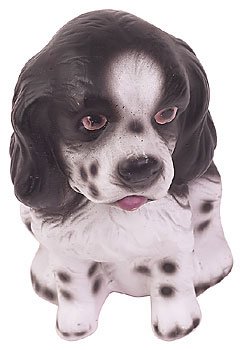When a pet gets sick, one of the first concerns many owners have
is whether or not poisoning has occurred. The ASPCA recently
released data on calls to the Animal Poison Control Center for
2006. The number of calls by species of pet is as follows:
When a pet gets sick, one of the first concerns many owners have is whether or not poisoning has occurred. The ASPCA recently released data on calls to the Animal Poison Control Center for 2006. The number of calls by species of pet is as follows:
1. Dogs: 80,749
2. Cats: 11,788
3. Birds: 403
4. Horses: 363
5. Rabbits: 216
6. Ferrets: 150
7. Rodents: 116 (includes mice, rats, gerbils and hampsters)
8. Fish: 68 (some of the fish reports involved multiple pets due to tank contamination).
One can see from this list that dogs are either more curious, or less discriminating than cats. The real surprise is finding ferrets so low on the list. Their habit of stealing and hoarding various household items must stop short of eating them.
The top 10 list of varieties of poisons is also instructive. The following list is in order of frequency of calls:
1. Human medications
2. Insecticides
3. Veterinary medications
4. Plants
5. Rodenticides
6. Household cleaners
7. Chocolate
8. Chemical hazards
9. Physical hazards
10. Home improvement products
The human medication list would be topped by NSAIDs (Non Steroidal Anti Inflammatory Drugs). These are medications such as Tylenol (highly poisonous for cats), Ibuprofen (poisonous for all pets), aspirin (usually a result of overdosing in dogs – a powerful poison for cats) and other related drugs.
There are now NSAIDs specifically designed for dogs, leaving no excuse for using the human versions in unsafe ways. Sadly cats are unable to safely metabolize NSAIDs for long term use, although there are times when very carefully monitored long term use of this class of drug may be life saving for them.
Insecticides are probably in the No. 2 position because of pet store sales of older flea and tick control products which never did have a good margin of safety. The newer products sold by veterinarians such as Front Line Plus, Advantage and Revolution have huge safety margins and much higher levels of effectiveness. Their higher prices make consumers want to look for alternatives, so unscrupulous retailers have taken advantage of this by repackaging the older, unsafe products to look like the new products.
Veterinary medications are probably in third place on the list due to poor understanding of limits of use and side effects and/or pets getting into the flavored products. The key here is to understand and follow directions and limits of use as described by your veterinarian. Also put these products where your pet cannot gain access to them.
The most common plants involved are lilies, rhododendrons and azaleas. Christmas time is a peak period for these plant related toxicities.
Rodenticides are one of the most common poisonings seen in veterinary hospitals. These cause internal bleeding that often goes undetected until it is too late, unless the empty box is found. Snail bait causes quivering and ultimately lethal seizures. Both the rodenticides and snailbait are poisons that dogs (and occasionally cats) will actively find and eat.
Household cleaners are an obvious problem. If you use a toilet cleanser, close the lid. Pets often drink from the toilet or the sink, where cleansers may cause problems even in small amounts.
We often gets calls about chocolate ingestion by dogs. The toxic agent is theophylline, a caffeine like substance that can cause diarrhea and heart failure. The undiluted bittersweet baking chocolate is the big hazard. It is at least eight times more concentrated than milk chocolate, which requires approximately one ounce per pound of your pets body weight to cause a life threatening problem.
Chemical hazards include such things as paint thinners and drain cleaners. A common mode of ingestion involves a pet walking in the substance and then grooming their feet. If you have pets, clean up or restrict access to places where these products are used.
Physical hazards involve things like choking on food and treats or eating things like string, rocks, underwear and pet toys.
Be aware of these hazards and save yourself the terror and cost of dealing with the resulting problems. If a problem occurs call your veterinarian. If they are closed, do a Google on Animal Poison Control. That will give you resources for deciding what to do and how quickly to do it. Pet emergency hospitals are a great resource when your veterinarian is closed.
John Quick has owned and operated the Animal Care Center in Morgan Hill for 25 years. He is a founder of WERC and Furry Friends Foundation and was Morgan Hill Male Citizen of the Year in 2003. Dr. Quick is also on the Morgan Hill Times Executive Editorial Board and the Community Law Enforcement Foundation Board.














